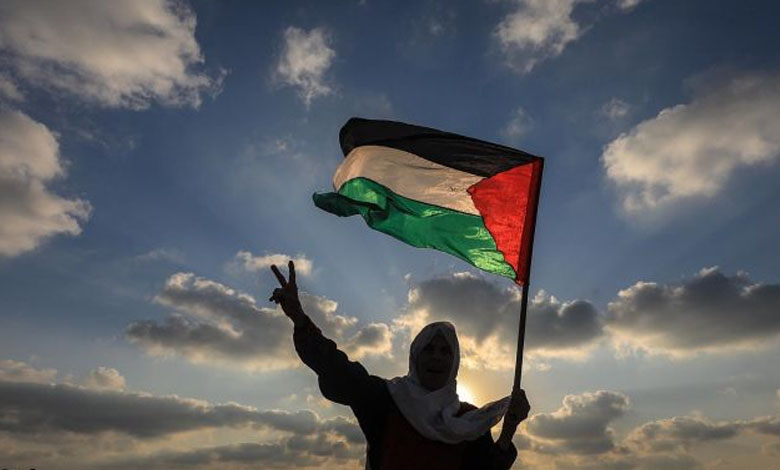To fuel conflict and tensions, why did Palestinian factions reject the outcomes of Sharm El-Sheikh in Egypt?

Egypt recently hosted a five-year meeting to promote calm between the Palestinian and Israeli sides during the month of Ramadan. The meeting was held in the city of Sharm El-Sheikh with the participation of high-level officials from Egypt, Palestine, Israel, Jordan and the United States. It resulted in nine agreed outcomes, which were agreed upon to maintain calm between the Palestinian and Israeli sides and to stop unilateral and provocative actions.
Extensive discussions on ways and means to reduce tensions
The five parties held extensive discussions on ways and means of easing tensions on the ground between Palestinians and Israelis with a view to paving the way for a peaceful settlement between Israelis and Palestinians. To this end and to begin implementation, the parties agreed on their commitment to promoting security, stability and peace for both Israelis and Palestinians, and recognized the need to achieve calm on the ground and prevent further violence, as well as to pursue confidence-building measures, enhance mutual trust, open political horizons and address outstanding issues through direct dialog.
Palestinian factions reject conference outputs
The conference was attended by the Palestine Liberation Organization, which includes a number of movements and organizations, not including Hamas and Islamic Jihad. Hamas declared its rejection of the conference and its choice is to escalate the resistance.
Moussa Abu Marzook, a member of the Political Bureau of Hamas movement, claimed in a Palestinian press statement that “our choice and direct interest is to escalate resistance against the occupation, and we reject the Sharm El-Sheikh conference and conferences that seek calm.
“Hamas and Islamic Jihad seek the outcomes of Sharm el-Sheikh for not wanting stability in Palestine, not wanting to calm down and seeking to revive the peace process frozen since 2014, among them strengthening security, stability and peace for Israelis and Palestinians.”
Hamas’ and Jihad’s approach has become known to all. Their leaders have become adept at outbidding public sacrifices. The movement fights for money, turns a blind eye to the deaths of Palestinians themselves, who are not members of the movement, and deluds the world that it leads the resistance.
Well-informed sources said that these factions are working on fueling the Palestinian-Israeli conflict to increase the violence during the month of Ramadan at the expense of the Palestinian people, namely Hamas and Islamic Jihad.
The political movements are also based on escalation with Israel and fanning the flames of war, which is harmful to the Palestinian people and has negative repercussions on the Palestinians, which led to the Palestinian movement recently taking action against Hamas and Islamic Jihad.
Security, not Political, Objectives Fueling Conflict
Tariq Fahmi, professor of international political relations, said some of the rejectionist factions, namely the Democratic Front for the Liberation of Palestine, the Palestinian People’s Party, and the Democratic People’s Union-Fida, are the main ones that refused to build Aqaba and then the Sharm el-Sheikh summit in Egypt.
Fahmi added: Security meetings considered that the Palestinian Authority is imposing more measures at home in the West Bank, in addition to the Palestinian People’s Congress and the popular movements that reject the outcomes of the Sharm El Sheikh or Aqaba summit, while rejecting security coordination is connected to what is happening, and in their view these summits are aimed at achieving Israel’s political interests and killing or ending the resistance throughout the West Bank.
The Egyptian political analyst continued, “Therefore, there is nothing to be hesitant about in this context, and there is no reason to continue such meetings and contacts in this image.”
He added that these meetings will not benefit the Authority anything, and that security coordination is what is needed in order to conclude it in one way or another in these conferences, and what these rejectionist movements and factions see as the continuous violations against the Palestinian people, and therefore I think that it is an important message because there is a major force in Palestine because the Liberation Leaders of Palestine are not organized individually, other than other organizations, and the idea that there are no agreements inside the Palestinian arena, and that the understandings in Aqaba and Sharm El-Sheikh are aimed at security, not political, and their goal is to end the resistance and not to deal with it.
He added that this divided situation with the Palestinian factions in the West Bank is due to the continuation of the state of deviation and the existence of many statements on the Authority’s path, fearing for the coordination of the Authority, subject under the approach of the American Authority to get a stimulus list for the Authority and its elements.












